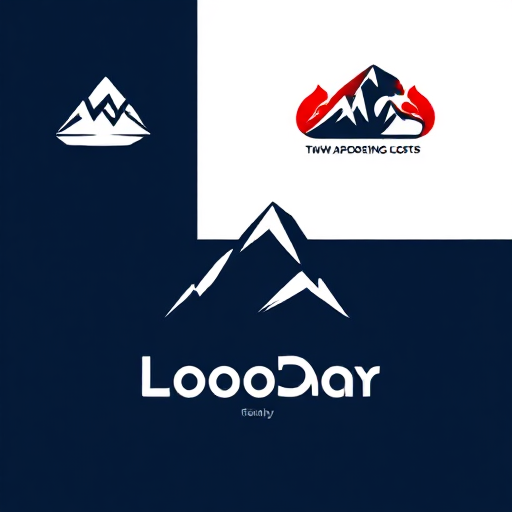Blogging Without A Website: Is It Possible And How To Do It?
In the traditional sense, blogging has always been associated with having a website—your own platform where you write posts, share content, and engage with readers. But what if you want to start blogging without creating a website? Is it even possible to blog without having a website, and if so, how can you make it work? Let’s explore the concept of blogging without a website and the alternatives available to content creators.
Make Money in 7 Days as an Entertainment Blogger and Affiliate Marketer – The Easy Way
What Does Blogging Without a Website Mean?
Blogging without a website refers to the act of publishing written content, thoughts, or opinions without hosting a dedicated blog on a personal or business website. Instead of building a website from scratch, you would use external platforms or services that allow you to post and share content without the need for web hosting or domain management. This approach may seem unconventional, but it’s growing in popularity, especially among those who are new to blogging or don’t want the hassle of managing a website.
Platforms for Blogging Without a Website
There are several popular platforms where you can create and publish blog-like content without having to set up your own website. These platforms offer a ready-made infrastructure for sharing your ideas and writing, while you focus on content creation.
1. Medium
Medium is one of the most popular platforms for blogging without a website. It’s free to use, easy to get started with, and has a built-in audience. Medium allows you to write and publish long-form content, share your ideas, and engage with readers through comments and social features. It’s an excellent platform for writers who want to focus solely on content creation without dealing with the technical aspects of website management.
2. WordPress.com
While WordPress.org requires you to manage your own hosting and website, WordPress.com offers a blogging platform where you can create a blog for free (with limited customization options). This is an ideal option for new bloggers who want to start writing without the commitment of a full website. WordPress.com handles the hosting and maintenance for you, so you can focus on creating posts.
3. Substack
Substack is a platform designed for newsletter-style blogs. It allows you to build an email list and send your blog posts directly to subscribers. Substack is particularly appealing for bloggers who prefer direct communication with their audience via email, and it also allows you to monetize your content through paid subscriptions.
4. LinkedIn
For professionals and business bloggers, LinkedIn offers a powerful blogging platform within the network. By publishing articles directly on LinkedIn, you can tap into a professional audience, build your personal brand, and drive engagement with your industry peers. LinkedIn’s articles feature is a great way to establish authority and share valuable insights.
5. Blogger
Blogger, owned by Google, is a free blogging platform that allows you to publish content without needing a website. While the design options may be limited, Blogger is simple to use and gives you the flexibility to publish your content and interact with readers. It’s an excellent choice for beginners looking for a no-fuss way to start blogging.
Make Money in 7 Days as an Entertainment Blogger and Affiliate Marketer – The Easy Way
6. Ghost
Ghost is a content management platform that offers both a hosted version and a self-hosted option. If you choose the hosted version, you don’t need to worry about setting up a website yourself. It’s designed for professional bloggers and content creators who want a clean, minimalist platform for publishing posts and building a subscriber base.
Benefits of Blogging Without a Website
- No Website Maintenance: When you blog without a website, you don’t have to worry about domain registration, hosting fees, or website security. The platform you choose takes care of these details, so you can focus purely on content creation.
- Lower Start-up Costs: Starting a blog without a website is cheaper than setting up a self-hosted website. Many platforms, such as Medium and Substack, are free to use, and even the paid options are often more affordable than paying for web hosting and design.
- Built-in Audience: Some platforms, like Medium or LinkedIn, offer access to a built-in audience. This can help you gain visibility quickly, especially if you’re just starting out and don’t have a large network of followers or readers.
- Simplicity and Ease of Use: Many blogging platforms without websites are incredibly easy to use, with intuitive editors and pre-designed templates. You won’t need any technical skills to start publishing content.
- Focus on Content Creation: Blogging without a website allows you to focus entirely on writing and sharing your content, without worrying about website design, SEO, or plugins. This is ideal for writers who simply want to express themselves or build a following based on their ideas.
Make Money in 7 Days as an Entertainment Blogger and Affiliate Marketer – The Easy Way
Challenges of Blogging Without a Website
- Limited Customization: Platforms like Medium and Blogger have limited customization options. If you want more control over the design of your blog or how it looks, you may find these platforms restrictive.
- Less Ownership: When you blog on third-party platforms, you don’t own the platform. This means you have limited control over the content, and the platform can change its rules, algorithms, or even shut down without warning. With a website, you have full ownership of your content.
- Limited Monetization Options: While you can monetize content on platforms like Substack or Medium, your options are still more limited compared to having your own website. Platforms may take a percentage of your earnings, or there may be restrictions on how you monetize your blog.
- Reliance on Platform Traffic: Without your own website, you’re dependent on the traffic and audience that the platform provides. If the platform’s audience isn’t aligned with your niche, you may find it harder to grow your readership or make money from your blog.
Make Money in 7 Days as an Entertainment Blogger and Affiliate Marketer – The Easy Way
How to Make Blogging Without a Website Work for You
- Focus on Content Quality: Since you won’t be able to drive traffic through search engines or paid ads (as you would with your own website), focus on creating high-quality, engaging content. Valuable, shareable posts will attract more readers and help you grow your audience.
- Build an Email List: If the platform you choose allows it, start building an email list right away. Email marketing will give you more control over your audience and provide a direct way to communicate with your readers.
- Leverage Networking: Take advantage of any community or networking features the platform offers. Comment on other blogs, collaborate with other writers, and engage with readers to build a loyal following.
- Monetize Wisely: Look for opportunities to monetize your content. Substack allows paid subscriptions, Medium offers a Partner Program, and you can always explore affiliate marketing, sponsorships, or digital product sales.
- Expand Gradually: If blogging without a website proves successful for you, consider gradually expanding your presence. Eventually, you may decide to build a website as your audience grows and your blog becomes a more serious endeavor.
Make Money in 7 Days as an Entertainment Blogger and Affiliate Marketer – The Easy Way
Conclusion
Blogging without a website is not only possible but can also be a practical and effective way to share your thoughts, build a following, and even monetize your content. By using platforms like Medium, Substack, or LinkedIn, you can focus purely on content creation without the technical headaches of managing a website. While it may have some limitations, blogging without a website is a great starting point for beginners, hobbyists, or anyone looking to share their voice online with minimal investment and hassle.







